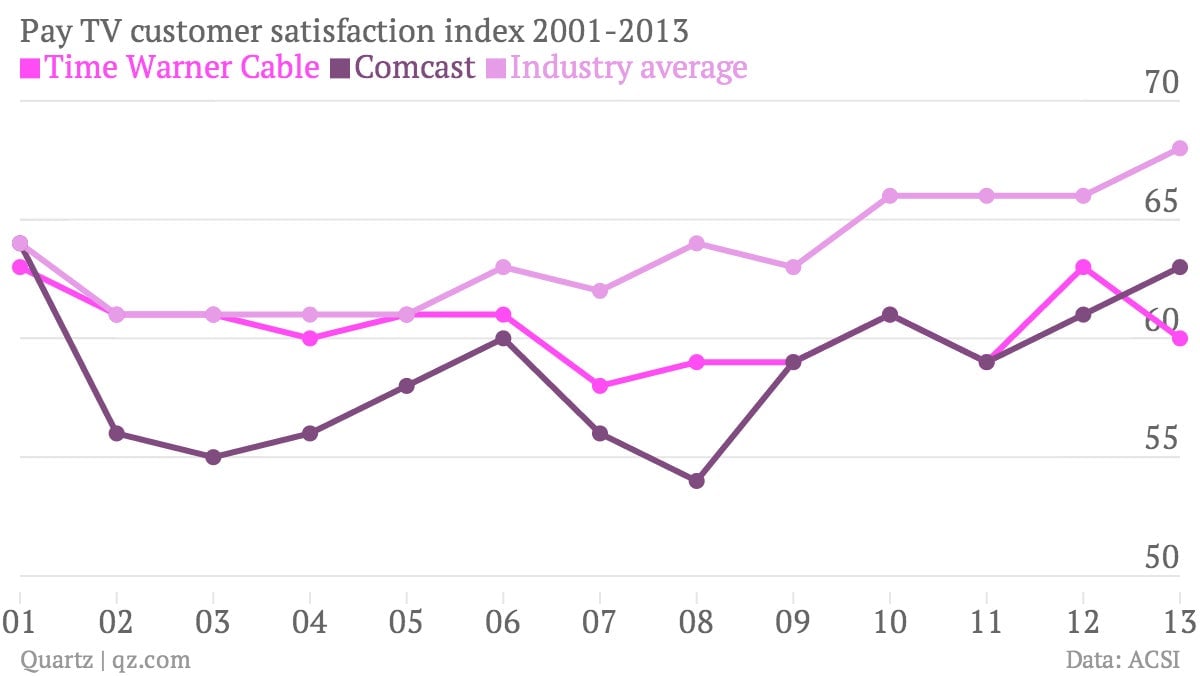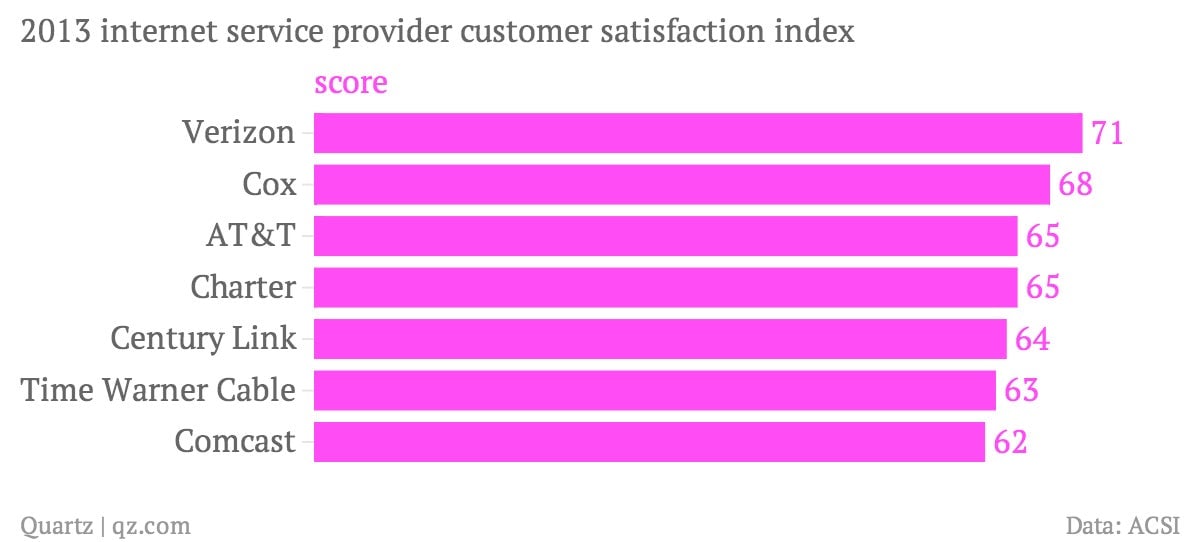A Comcast-Time Warner Cable deal would combine two of America’s most-reviled companies
Comcast’s planned $44 billion acquisition of its rival Time Warner Cable makes a lot of sense from a business perspective, but the deal may not bring much joy for their beleaguered subscribers, who have consistently ranked the companies dead last in the industry’s customer satisfaction surveys:

Comcast’s planned $44 billion acquisition of its rival Time Warner Cable makes a lot of sense from a business perspective, but the deal may not bring much joy for their beleaguered subscribers, who have consistently ranked the companies dead last in the industry’s customer satisfaction surveys:

The pay-TV industry itself ranks among the least liked US industries, rivaled only by internet service providers—which happen to be largely the same companies. Time Warner Cable and Comcast still get the worst scores in the American Customer Service Index:

(Incidentally, the only industry that achieves similarly awful customer satisfaction marks is social media, with Twitter, Facebook, and LinkedIn all scoring as low as cable companies.)
Disdain for cable companies and their installation and repair guys has been a long-running joke in the US. But the dissatisfaction has only gotten worse as subscription fees have skyrocketed and the industry’s battles with content providers have resulted in periodic outages of popular programming. At the same time, Netflix and other internet services have emerged as a viable alternative for cord-cutters.
Those trends are indeed some of main drivers behind the Comcast-Time Warner Cable deal—but they aren’t likely to have much impact on cable companies’ dismal reputation. Before the Comcast deal was announced, Harvard Law professor Susan Crawford wrote for Bloomberg that the customers of a post-merger cable company “will probably see prices rise, with no corresponding improvement in service.” And if the tarnished Time Warner Cable brand disappears, its irate customers would only be trading up to the second-most hated name in the game.